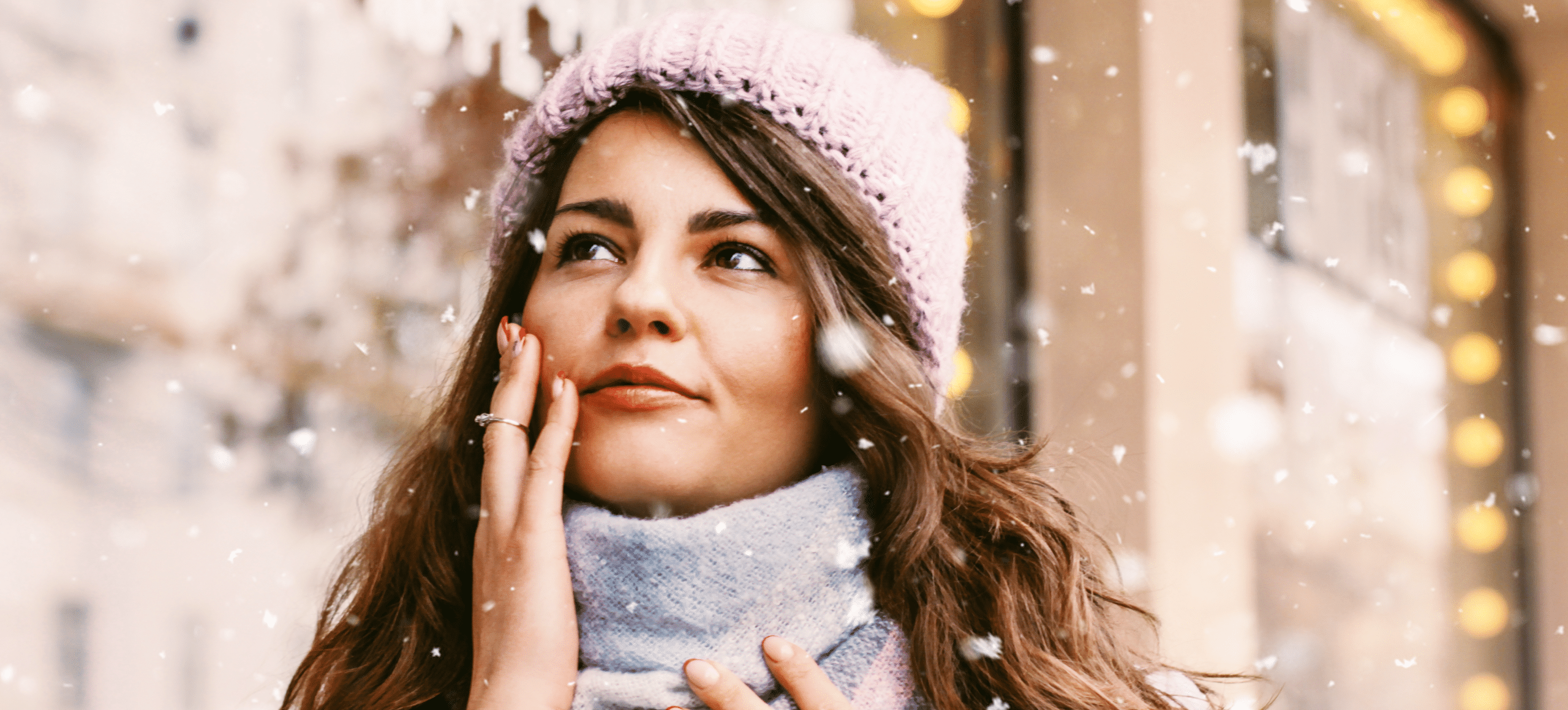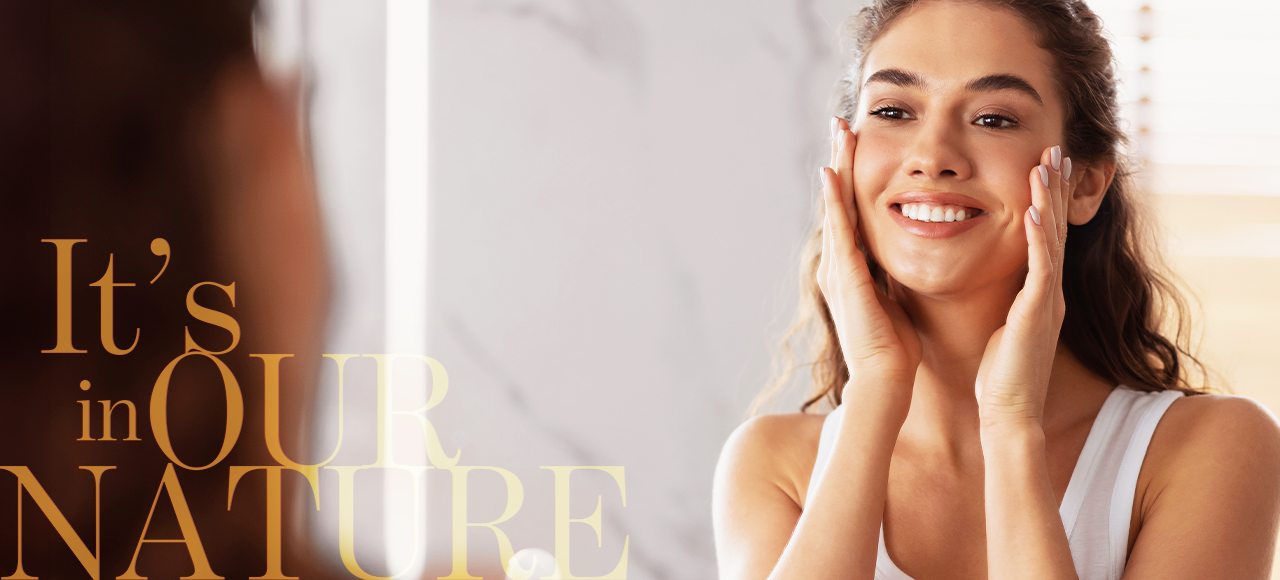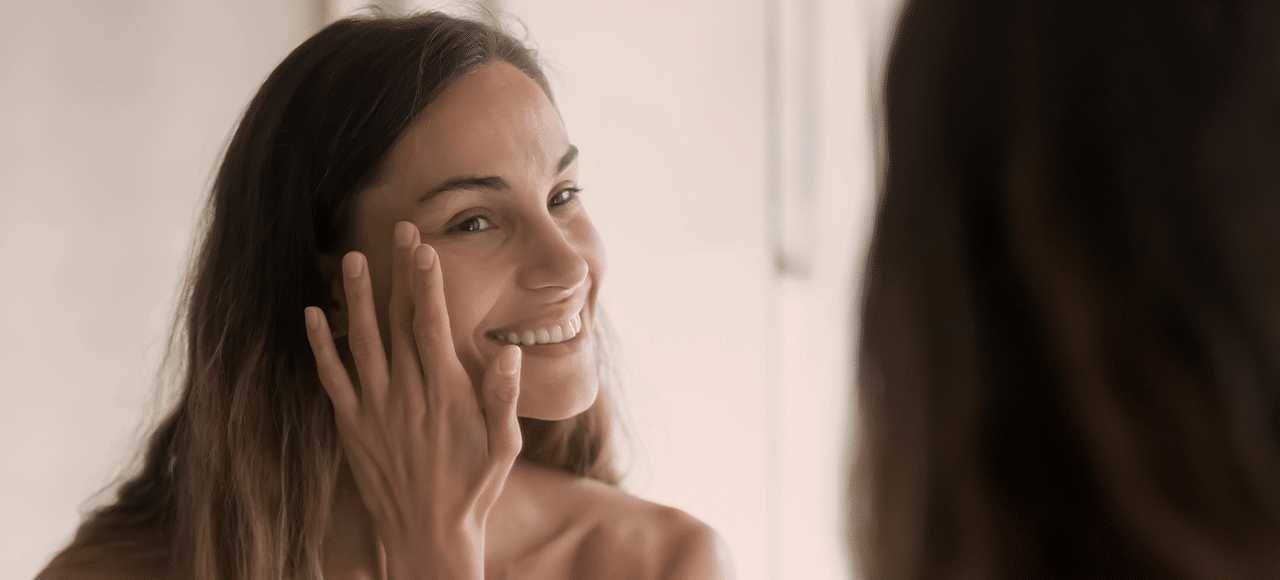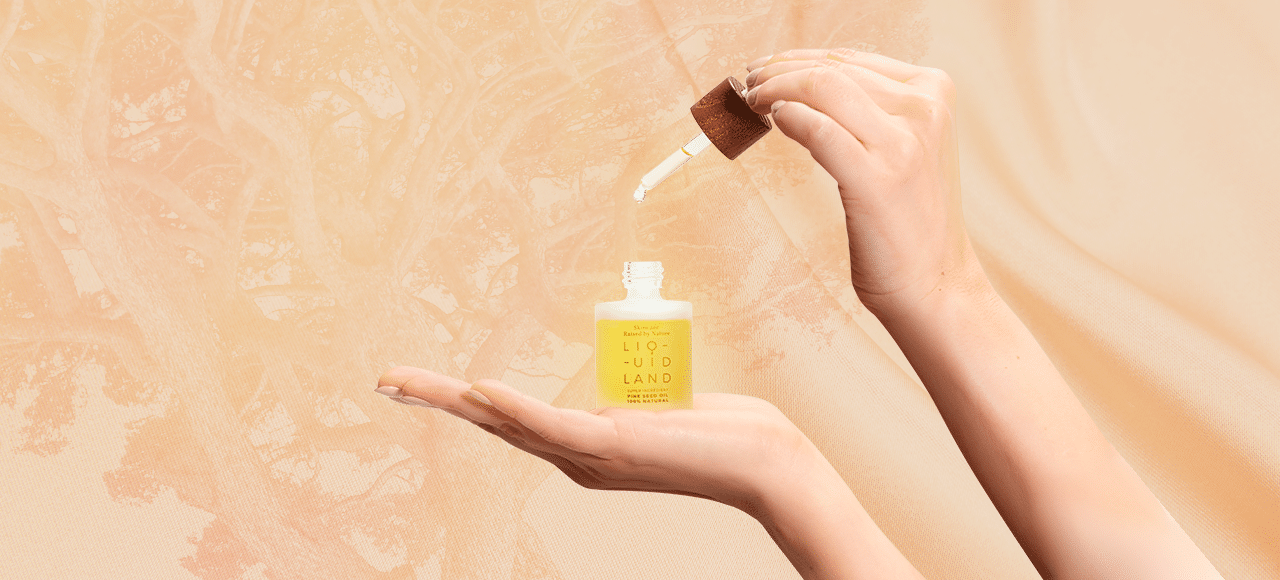How to take care of your skin in winter



The arrival of winter brings with it the emotional need to take hot baths, sit in front of the heater and feel that heat directly on our face and hands. Be careful, because these are two very damaging actions for our skin, which is naturally more reactive at this time of year.
What happens to our skin in winter?
As we shared in the article “Hydration after the summer“, hot air conditioners and heaters remove water from the skin, while hot baths remove lipids from the skin, causing damage to the proteins in your skin barriers.
The truth is that when we feel cold, the blood vessels in our skin contract in an attempt to divert more blood to the organs. However, as there is less warm blood in the skin, the extremities will be the most affected.
Beyond that, despite the lower temperatures, sun exposure is still strong: UVA rays remain intense and UVA wavelengths penetrate deep into the skin, causing wrinkles, sagging and thin skin.
The skin acts as a protective barrier against changes in the environment, which is why the contrasts in temperature and humidity in winter can damage it. What are the consequences? Dryness, dehydration and itching. The so-called “winter itch” is real, coming from the dry, cold air and scaly skin.
Low temperatures reduce the activation of the cells that produce the layer of fat that protects the skin from external factors. As well as being an essential layer for maintaining hydration, it prevents the penetration of bacteria and fungi.
A decrease in the skin’s fat layer means a lower level of lipids in the skin, resulting in a significant loss of water, i.e. skin that is not hydrated. Its weakening makes the skin prone to allergies and more likely to develop certain dermatological diseases or complications. Learn about some of them with us.
Atopic dermatitis
Atopic dermatitis is one of the most common illnesses at this time of year and, as well as causing skin irritation, dryness and intense itching, it has a very negative impact on well-being. When aggravated by the cold, it can lead to the development of inflammation and infections.
The disease begins to manifest itself in the first few months of life, mainly on the cheeks, through red, rough lesions, small pimples and peeling. However, it can also appear later, in young people or adults, affecting other areas of the body, such as the folds of the elbows and knees, the wrists, the back of the hands and feet, as well as the eyelids, nipples, genital area and hands.
Seborrheic dermatitis
This is a dermatological condition that can affect newborns or anyone after adolescence. In babies up to the age of 4 or 5 months, the disease manifests itself through red skin and oily scales all over the body. In young adults, on the other hand, the disease mainly affects the head and upper torso, also causing scaling of the scalp, eyebrows, moustache and beard, and the folds of the body. There are other symptoms such as redness, pimples and itching.
Chilblains
Chilblains are an inflammation caused by low temperatures, when there is prolonged, unprotected exposure to cold and damp. It usually affects the fingers and toes, although it can also appear on the elbows, nose and ears. The main symptoms are pain, burning and itching. They usually disappear in less than a month, but can become chronic and require medical attention.
Burns
It’s true: cold weather can also cause skin burns, which can manifest as white, red or grayish skin, where the main symptom is pain. If you recognize these signs, you should immediately go to a warmer area and protect the affected area by immersing yourself in warm water or warming up with your own body heat.
How can you prevent these complications in winter?
You should pay special attention to your skin. This is the ideal time for more in-depth treatments, regardless of your skin type: normal, oily, combination, dry or sensitive. With the right care, you’ll be able to protect your skin from winter aggressions.
Nutrition
First of all, don’t forget to drink fluids. Although we don’t feel the need to drink as much in colder temperatures, it’s still essential to combat dry skin and lack of hydration. If you find it difficult to drink a lot of water, you can opt for a nice cup of hot tea.
You should also eat foods that strengthen the body and neutralize free radicals to protect yourself from the cold:
- Foods rich in Vitamin A: This nutrient protects the skin from the cold and prevents it from drying out. It is found in foods such as milk, butter, cheese and egg yolk;
- Foods rich in Vitamin C: This vitamin strengthens defenses and acts as an antioxidant. It is found in citrus fruits, melons, tropical fruits, tomatoes and vegetables in general;
- Potassium-rich foods: Potassium improves the elasticity of capillary and cell walls. We suggest eating bananas throughout the week;
- Foods rich in Vitamin K: Helps blood clotting, preventing bleeding and bruising. You can find this vitamin in broccoli and cauliflower;
- Brewer’s yeast: Strengthens skin, hair and nails, as well as boosting immune defenses. You can add it to juices and soups, for example;
- Almonds, walnuts and chestnuts are also rich in antioxidants and vitamin E, and are important allies for maintaining healthy skin;
- Isoflavones, present in soya, also help prevent dryness by preserving water content, providing more elasticity to skin tissue.
Protection
Temperature changes are dangerous for your skin, so you need to be careful when going in and out of enclosed spaces. In addition, you should choose clothes that allow you to sweat and that aren’t too tight, to the point of hindering blood circulation, as the lack of oxygenation can cause skin irritation.
Here are some important tips to help protect your skin in these colder times:
- Cover your extremities;
- Wear several layers of clothing;
- Choose cotton fabrics and natural fibers;
- Avoid direct skin contact with synthetic fibers and wool;
- Avoid hot, long baths and the use of very rough sponges, which reduce the skin’s protective barrier. Prefer warm water baths;
- As for heaters (another enemy for the skin), you should prioritize humidifiers, which regulate the humidity in your home;
- In view of the UVA rays, sunscreen should not be forgotten, especially on the face and neck. The lips require special care, as the skin in this area is very thin and delicate, so we suggest that you also include a lip balm in your routine.
Hydration
To hydrate your skin at this time of year, it may be more comfortable to use products with creamier textures, which hydrate it more deeply and reinforce its protective barrier. You can replace body cream, for example, with a natural oil, which will promote comfort to your skin and is rich in antioxidants and nutrients, restoring the skin’s lipid balance.
Our Mediterranean pine seed oil is a great solution:
- It is 100% natural;
- Prevents water loss;
- Promotes hydration;
- It is a powerful antioxidant that strengthens the skin’s barriers, protecting it against external aggressions;
- You can also use it by adding a few drops to your usual hydrating. With just 4 drops morning and night, get ready for active skin regeneration.
Don’t forget to hydrate your body every day, after showering, to help retain moisture and encourage the cream to penetrate the skin. And we have more tips for you:
- Pack a hand cream and lip balm in your bag, to apply several times a day;
- Don’t take baths and showers excessively, as these can dry out the skin;
- Prioritize neutral soaps and forget about perfumed ones, which can be aggressive to the skin;
- Exfoliate every two weeks, especially in areas that dry out easily, such as elbows and knees;
- Before going to bed, apply a hydrating cream to your hands and feet, areas that suffer a lot in winter.
In addition to diet, protection and hydration, prioritize your sleep and try to get 7 to 9 hours of sleep a night. Did you know that while you sleep, your skin enters a state of repair in which it produces new collagen? It’s revitalizing. Also, don’t forget to exercise, which stimulates blood circulation and helps the body maintain a balanced temperature.
The combination of all these elements will give your skin everything it needs this new season. It deserves the best care and will need extra attention, so don’t forget about it.
Protect your skin, and it will also protect itself from all enemy agents.
Sources:




